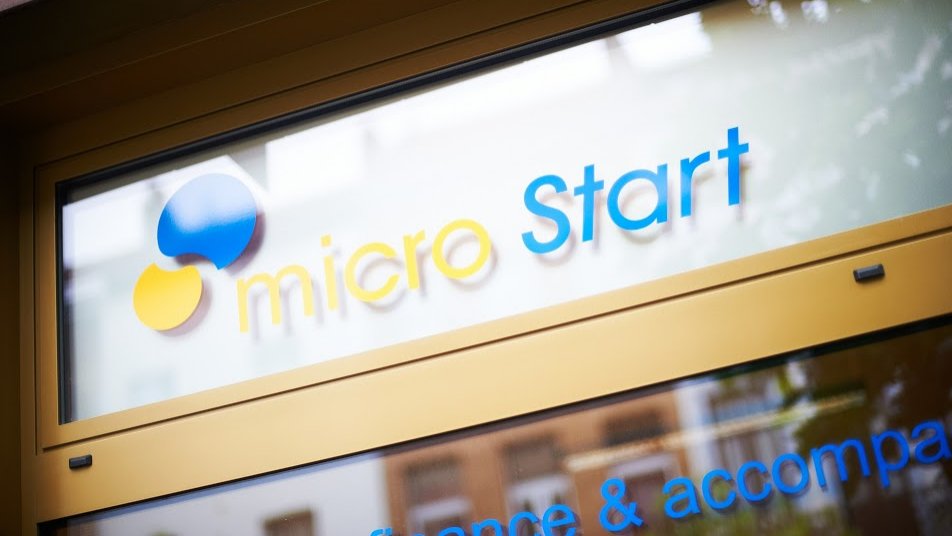Microcredit against social exclusion
The second Microcredit Week, an initiative of the microfinance institution microStart, will take place from 27 to 31 May 2013. During the event, the social enterprise microStart is launching its microStarter competition, which will reward the best micro-enterprise projects.
Since it was set up in 2010, microStart has been helping those excluded from the conventional banking system to start up their own business thanks to microcredit and free support. In order to increase awareness of its action, last year microStart launched Microcredit Week in Brussels. Given the success it enjoyed, the microfinance institution decided to extend the event to Flanders and Wallonia. From now on, activities will be organised in Brussels, Ghent and Liège.
By providing financial support and suitable coaching, microStart plays an important role in the fight against social exclusion. A role which is acknowledged by the backing of many major players in the sector (the Brussels and Flanders employment agencies Actiris and VDAB, the King Baudouin Foundation, the cities of Liège and Ghent, the Brussels and Walloon Regions) and which earned the institution the Federal Award 2012 for the Fight against Poverty.
microStart is firmly convinced that microcredit and the creation of micro-enterprises are very promising means of promoting vocational and social integration. Almost 90 % of its beneficiaries are of foreign origin, may or may not have qualifications, live below the poverty threshold and are without much prospect of finding work on the labour market. As this issue affects the country as a whole, it was important for microStart to be present on a national scale. This has now been achieved with the opening of its branches in Ghent and Liège.
"Our experience proves that there is a real demand among those on social benefits, who are low skilled but have some experience and a huge desire to venture and to succeed”, explains Patrick Sapy, general manager of microStart. "In two years, we have met almost 2,000 people and granted almost 500 microloans. The unemployed can create wealth too, provided the appropriate mechanisms are put in place”, he goes on.
However, when they want to take charge of their own destiny, people like this come up against four major obstacles: the immediate loss of their replacement income, the high level of social security contributions upon start-up, the requirement for a diploma of higher education or the need to take an exam to validate their access to management and the lack of a public mechanism for quasi equity.
These impediments have major negative consequences. Aspiring entrepreneurs often simply abandon the idea of starting a business, or they give up very quickly, when they receive the first social security contribution payment notice. But most often, they are forced to work in hiding to survive, whereas if an appropriate framework were put in place, they would be able to start up and benefit from both start-up capital and training thanks to proper support.
"A recent study funded by the European Commission ranks Belgium among the top three countries in the European Union in terms of the cost of unemployment, whereas providing support for someone who is unemployed to create a job costs EUR 3,000. Clearing away the regulatory obstacles would enable the development of micro-enterprises. The passive expenditure for employment would be greatly reduced while tax returns would increase” says Patrick Sapy, whose puts the arguments in favour of adapting the legal framework to socio-economic players (public authorities, employment services, etc.).
microStarter, a competition for fledgling entrepreneurs. To encourage aspiring entrepreneurs, Microcredit Week will kick off with the launch of the microStarter competition, which will reward the best micro-enterprise projects. Having examined the candidate’s capacity to successfully implement the project, its economic viability and its relevance in the chosen category, a professional jury will award a prize to the most innovative project. Applications can be submitted at the microStart stands during Microcredit Week and in all microStart branches, from Monday, 27 May to 31 July. The winner will receive the sum of EUR 2,000 and will be coached by a well-known entrepreneur when starting up their business.
More information: www.microstart.be
About microStart – microStart aims to make micro-loans available to people who are excluded from the normal job market and find themselves without access to traditional lending, but would nevertheless like to set up their own business. In the meantime, microStart helped to create nearly 300 new jobs in Brussels.
The initiative came from ADIE, a French non-profit organisation whose founding principle is that everyone should have the right to embark on economic activity, in conjunction with the European Investment Fund and BNP Paribas Fortis, Belgium's No. 1 bank.
microStart can rely on guarantees issued by Progress MicroFinance, the European Progress Microfinance Facility, which aims to increase the availability of microcredit – loans below EUR 25 000 – for setting up or developing a small business. Progress Microfinance does not directly finance entrepreneurs, but enables selected microcredit providers in the EU to increase lending, by issuing guarantees, thereby sharing the providers' potential risk of loss, and providing funding to increase microcredit lending.
Encouraged by the results achieved so far by its two Brussels branches, microStart is expanding into Flanders and Wallonia. It currently has four branches:
1060 Saint-Gilles, place Bethléem 9 (South Brussels branch)
1030 Schaerbeek, rue Royale Sainte-Marie 47 (North Brussels branch)
9000 Gent, Wondelgemstraat 183
4000 Liège, rue de la Madeleine 27
